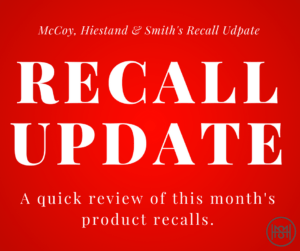No one wants to think about the end of their life but preparing for the inevitable can make life much easier for the loved ones you leave behind. Of course, everyone needs a will to detail how they want their assets to be divided and any other instructions they would like followed after death. Along with that it may be a good idea to have life insurance.
What is life insurance?
In the event of your passing, life insurance will provide money to your beneficiaries to use as they see fit. This money could help with replacing lost income, covering basic living expenses, funeral costs, and future education
Work With Chad and Sheila Today
Do I need it?
Although not everyone needs life insurance there is one basic question that can determine whether you do or not. Does anyone financially rely on you? If so, you need life insurance.
The Basics
Before digging in to what life insurance is and how it works here are a few key words that you will need to understand.
Policy: a contract between an insurance company and someone who has a financial interest in the life and livelihood of someone else
Premium: the amount of money that an individual must pay for insurance coverage
Insurer: the insurance company, responsible for paying out claims after death
Owner: is the policy holder responsible for paying premiums to the insurance company
Beneficiary: the person, trust, or entity due to receive the death benefit after the insured’s passing
Death benefit: the amount paid to the beneficiary at the time of the insured’s death
Life insurance can be broken down into four categories, term, whole, universal, and variable.
Term Life Insurance
This type of plan, also known as pure life insurance, provides financial protection for a specific period of time, such as 10 or 20 years. It is designed only to protect your dependents in case you die prematurely. If you have a term policy and die within the term, your beneficiaries will receive the payout, but it does not have any value outside of that.
Need A Lawyer That Will Fight For your Rights?
Whole Life Insurance
As a permanent insurance policy, it will provide lifelong coverage and includes an investment component known as the policy’s cash value. Part of your premium goes into the cash value which grows over time – tax differed. Once the cash value has accumulated the owner of the policy may borrow from it or surrender the policy for cash.
Universal Life Insurance
This is a type of permanent insurance that provides lifetime coverage. These policies are flexible and may allow you to raise or lower your premium payment or coverage amount throughout your lifetime.
Variable Life Insurance
Another option if you’re looking for permanent coverage, variable life insurance lets you decide how a portion of your cash value is invested. This could be a great option if you have time and knowledge to choose investment opportunities to maximize the cash value of your policy.
How much do I need?
While it’s impossible to predict the exact amount of life insurance you need, it’s easy to make a reasonable estimate. Your goal should be to develop an insurance plan that, following your death, will allow your family to live comfortably without your economic contribution.
To estimate the amount of life insurance your family would need, first calculate everything you now provide for your family including:
- Salary
- Benefits/health insurance
- 401(k) and retirement savings
- Personal services you perform for your family, such as child care, cooking, home maintenance, etc.
Then, subtract your personal expenses including personal needs such as food, clothing, entertainment, etc. It’s also important to consider the effect of inflation over time.
How much does it cost?
Your premium is dependent on many things including policy type, age, health status, and lifestyle. Rates for term insurance are typically lower than permanent policies but rates for all types of life insurance will likely increase with age.
While nothing can diminish the hurt a family feels when their loved one passes, purchasing life insurance can help alleviate some of the worries that come with the loss.
Let Us Put Our 58 Years Of Trial Experience Towards Your Case.




